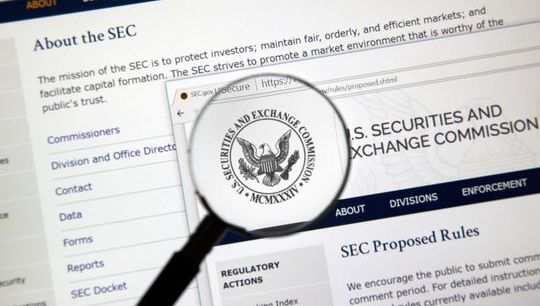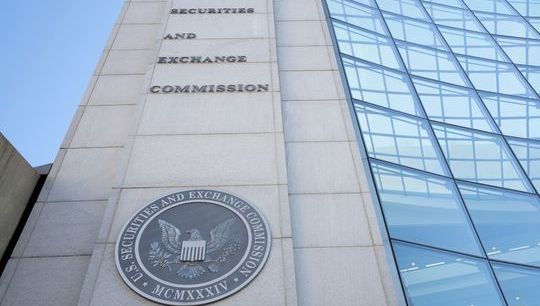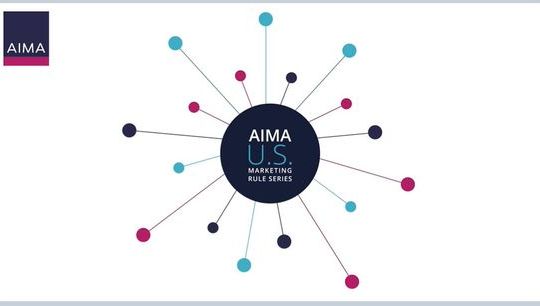How startup hedge funds get an edge with branding
Published: 25 July 2022
A new hedge fund needs the best start in life
By some accounts there are around 10,000 hedge funds blinking in and out of existence worldwide. Why does an investor choose one hedge fund over another? This is a question of consequence to anyone launching a startup hedge fund. The investor may choose a fund to target a certain strategy, asset class or region. Or perhaps to spread risk across management firms of various sizes. Firms are identified by brand. Startup funds with effective branding are more likely to pass the investors’ selection process because it’s clear what they stand for.
Brand is another word for reputation.
Blackrock, Bridgewater, Renaissance.... These names evoke instant associations in the minds of people in the financial sector. Those memories and impressions reflect the reputation of the company. This is the essence of branding.
When we hear the name Bridgewater, see their logo, visit their website, view their deck, we perceive the firm in a distinctive way. That perception has been shaped over many years and through many activities. A firm’s name represents its AUM, its team of thousands of people, its HQ and offices. It stands for all the value it has created for its many stakeholders.
How startup hedge funds leverage brand
A new hedge fund by definition has no history. But it doesn’t launch with zero reputation. Instead it leans on the reputations the founders built before the new venture. Prominent in their biographies will be the names – brands – of the firms where they developed their experience.
A manager’s credibility rests largely on the strength of the brands in their bio. So that’s one way a startup hedge fund applies branding to obtain advantage. Interestingly however, brand building often appears to be a low priority for startup fund founders.
Brand is more than a logo
Brand is a public expression of business strategy communicated effectively at every touch point.
Effective branding is laser-focused on audience, simple, consistent and memorable.
It’s expressed through key messages relevant images in a manner uniquely distinctive to the concepts it represents.
Brand building? We don’t have time for that
An emerging manager establishing a new business has a lot to think about. Compliance, recruiting, operations, sales and marketing.... These things are of existential importance.
Branding is often sidelined as a soft attribute with low impact. The logo and corporate identity is hurriedly produced by a handy designer, or even by a founder.
A company website is launched that lacks emotional impact and fails to articulate a distinctive positioning for the firm. In the rush, design inconsistencies crop up between website, presentation deck, stationery and other items. The disorder projects a perception of sloppiness. Managers will claim great numbers will defeat an emotional response. Psychologists would disagree – and produce studies to prove it.
Thoughtful branding sets the stage for success
In the big scheme of things branding looks like one of those things that can be cleaned up later. Something to do after operations are established and the business gets traction.
Of course it’s vital for a startup fund to create a high quality product offering. It’s equally important to communicate that quality. Investors proactively screen hundreds of funds and also evaluate many cold callers. Those unable to quickly articulate their strengths, focus and uniqueness are eliminated.
There’s no better time to focus on branding than early in the game. Here’s why:
- Clarity of purpose – What does your firm promise investors? How will you keep that promise? What strengths does your firm have over others? Answering questions like these focus your business strategy and inform your brand strategy. You can hone your key messages, and position your company through a methodical approach to brand building. Get it right and your team will all be on the same page and better equipped to close deals.
- Commitment signalling – A consistent modern brand identity and clear impactful messages communicate attention to detail and determination to get things right. Effective branding tells investors you understand your business and are committing to a shared long-term relationship.
- Positioned for growth – After completing the process of brand development, your firm and its stakeholders should have a clear idea of what you stand for and where you’re going. An effective brand building process will give your business a professional image, and the tools for colleagues to reproduce and amplify it going forward.
- Highest ROI – Multinationals spend a lot to achieve global brand consistency because it’s the cognitive glue that holds their business together. Brand consistency is a worthwhile investment even for a startup hedge fund because remedial work often carries far higher costs than getting it right in the first place, not to mention the lost opportunity costs.
- Earned respect – You wouldn’t turn up to an investor presentation in pyjamas. Showcasing your business in the best possible light shows respect for yourself, your team and your backers. Clear messaging is also respectful of people’s time.
The challenges of brand building
Because a successful brand looks simple, it’s natural to assume the development process is easy. Actually that strong, uniform facade is likely built with a surprising amount of sweat, discussion, expense and experimentation.
The leader responsible for a new fund may be involved in a branding project for the first time. A professional life spent mastering facts may not equip an individual to usefully judge, or even comment on subjective aspects of branding.
To reduce the risk, select your branding partners with care. Look at their track record in your sector and relevant portfolio of work, whose artistry you can appreciate, and who is able to explain the decisions they made and how it benefited the brand owner.
Chemistry counts
It’s important to establish frank, open relationships with the teams building your brand.
You can potentially reduce costs by engaging two teams. Not all design companies have strategy skills, which requires writing talent. Start with a brand building specialist that can articulate an effective brand strategy and create an engaging design direction.
Their work can inform a design studio that can create your website, deck, stationery and other branded essentials. The branding team can supervise this if necessary.
Pro tips
Startup hedge fund founders may find these thoughts about creative brand building useful:
- Start with a creative brief. Usually this document is produced by a branding firm through research and founder interviews. The brief aligns your business plan, brand strategy and design. It defines objectives, what makes your fund unique, and what might persuade stakeholders of your value.
- Listen to the right people. Respect your branding partner’s advice. Don’t go with your gut. Brands are not food. What you like may not be to other people’s taste – and you are aiming to make an impact on other people.
- Avoid proliferating directions. A bigger choice of potential names, logos and design concepts does not lead to better outcomes. It’s harder to make a decision, you’re less likely to make a good decision and you’ll probably not be happy with your decision in the long term.
- Embrace simplicity. There is a tendency to complicate branding. The more complex your images and ideas, the less effective they will be.
Key takeaway: Effective branding gives startup hedge funds an edge
This article was written by Stepworks who have considerable financial sector branding expertise, including with startup hedge funds. Contact AIMA member Stephen Barry if you’d like to explore this topic further.








